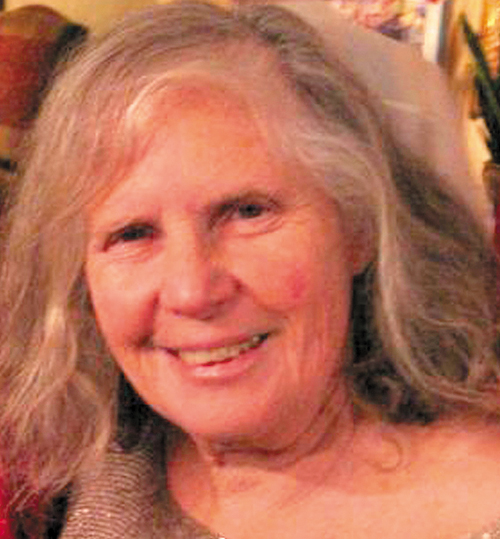
Last week, the Jewish community lost an important leader and precious human model of integrity, modesty, compassion and justice, a woman of intensive Jewish learning, heartfelt prayer and total commitment to halacha. In that sense Rivka Haut was Jewish royalty. Just as she made an indelible mark on the Jewish community during her lifetime, so her passing at age 71 has left a great void.
Rivka Haut was born, raised and married in Brooklyn NY, where she continued to live with her husband, Rabbi Irwin Haut. After he died in 2001, she moved to Riverdale NY to be near her daughters and their families.
She was educated at Shulamith School in Brooklyn, Flatbush Yeshiva and then Brooklyn College. She received a master degree in English literature from Brooklyn College and a second masters in Talmud from the Jewish Theological Seminary. She had a lifelong passion for the study of Jewish texts, particularly Tanach and Talmud. In times of need and sorrow, she turned to Jewish learning, and in times of joy she never let it go. At the time of her death, she was steadfastly enrolled in her shul’s daily shiur, the Daf Yomi taught by Rabbi Dov Linzer of Yeshivat Chovevei Torah.
Rivka Haut published numerous articles and co-authored several books: “Daughters of the King: Women and the Synagogue,” with Rabbi Susan Grossman; “Women of the Wall: Claiming Sacred Ground at Judaism’s Holy Site,” with Dr. Phyllis Chesler; and “Shaarei Simcha: Gates of Joy” a book of prayers and commentary with Dr. Adena Berkowitz. At the time of her death, she was nearing completion of a book on agunot, co-written with Dr. Susan Aranoff. Her contributions to gettlink, the list-serve of agunah activists , were tremendous; one could always find a balanced comment or letter from Rivka, even if she took a position contrary to the majority view.
A leader in women’s tefillah, first in Flatbush and then in Riverdale, Rivka carefully nurtured and defended the institution in every way possible. When partnership minyanim began to garner greater communal interest, Rivka remained faithful to the Woman’s Tefillah enterprise. She told her rabbi, Rabbi Avi Weiss, that she loved to hear the sounds of women davening together. She was a founder of the Women’s Tefillah Network.
One of the distinctive moments of her life took place in Israel in 1988, at the American Jewish Congress Conference on Women’s Equality. Somewhat spontaneously and with several friends, Rivka managed to secure a Torah scroll for women’s group prayer and Torah reading at the kotel, a first in Jewish history. From this grew the Women of the Wall, a monthly prayer group that has continued unto this day and of which Rivka remained an active member. Through WOW, Rivka was enabled to cross denominational lines that enlarged her circle of friends and admirers.
She supported many women’s causes and was a founding board member of JOFA. But she is probably best known for her work with agunot, an open-ended commitment she maintained for 40 years. She was an early member of the GET organization in Brooklyn and she headed the JOFA Agunah Task Force for several years. She assisted many hundreds of individual victims of iggun and organized protests and rallies against their recalcitrant husbands. She helped countless women move through the intricacies and challenges of the religious court system. She knew the judges of most of the rabbinic divorce courts and worked well with them, including no restraint in challenging them when she felt they had not done enough to release a particular chained wife. At the time of her death, she was beginning to work with enthusiasm on the new International Beit Din, a court that is highly committed to finding solutions to every case of iggun.
But vital statistics, organizations and achievements are only part of the story of Rivka Haut. As a friend and neighbor, as a community member and as an agunah activist, she was never too busy to reach out to someone in need and never turned away a request for help, even as she faced the grave illness that took her life. She was straightforward and spoke only the truth in all situations. And she was modest to the core, never ever seeking honor for herself but only working for the cause. Indeed, one has the feeling that Rivka would have been surprised to discover how bereft are so many people at her passing, how much she was loved, and how important she was to the entire Jewish community.
With all of her accomplishments, her family was and remained the center of her life. She was a grandmother par excellence, giving priority to the lives of her children and grandchildren. She took great pride in the accomplishments of her two daughters, Dr. Sheryl Haut and Tamara Weissman, both active members of their communities, her sons in law, Dr. David Rosenberg and Dr. Seth Weissman, and her 6 grandchildren, Ariel, Ayelet, Eleanna, Aaron, Adi and Nitzi.
Her grandchildren were the light of her life, and when she was “on duty” for afternoon pickup or babysitting, which she was on an almost daily basis, she did not even like to take phone calls from colleagues or friends. Grandparenting was serious and joyous business to her. When Tamara moved Maryland, Rivka traveled often to visit those grandchildren; distance would be no deterrent to deepening these relationships.
Her work in this world will have to be taken up by others, many others, to replace the void that one woman has left. I now understand that to be one of the meanings of the classic phrase, tehe nishmata tzrura bitztror hachaim, may her life be bound up with the lives of the living.
And may the memory of a righteous soul be a blessing for all humanity.
By Blu Greenberg









